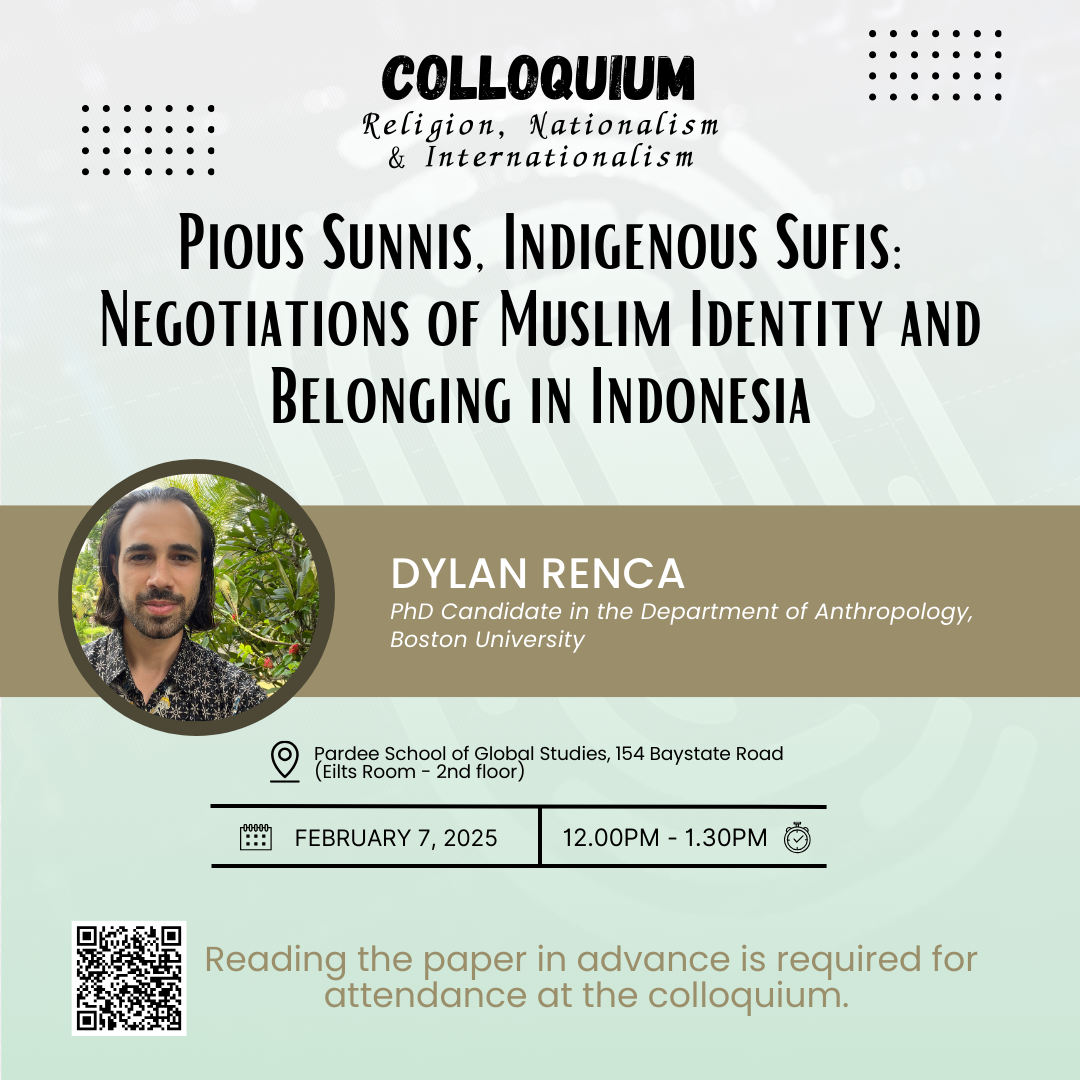Pious Sunnis, Indigenous Sufis: Negotiations of Muslim Identity and Belonging in Indonesia
Dylan Renca, PhD Candidate in the Department of Anthropology, Boston University
Date: February 7, 2025 | 12:00 PM – 1:30 PM
Location: Pardee School of Global Studies, 154 Bay State Road, 2nd floor (Eilts Room)
Abstract: Drawing on ethnographic fieldwork in south-central Java with Muslim members of communities called paguyuban (devoted to Sufi-styled recitations and practices honoring village ancestors), this paper explores how members link their Sufism with a narrative of indigeneity as a way of negotiating identity and belonging as Muslims and Indonesian citizens. I argue that this narrative emerged in response to a hierarchy which pious Sunni Muslims have imposed in Indonesia around belonging to the Muslim community and the nation. Pious government officials use a number of measures – requiring citizens to publicly declare a religion on their ID card, mandatory religious education classes, state surveillance, and anti-blasphemy laws – to pressure paguyuban members into conformity with pious practices (e.g., salat prayer, Qur’anic study) derived from Islamic law and seen as definitive of Muslimness. Paguyuban members respond by performing a degree of public conformity to Sunni piety. Privately, however, they push back by articulating a notion of indigenous personhood oriented around the cultivation of Sufi values (e.g., calmness, compassion, love) argued to be more important than Islamic law and known to their ancestors before missionaries brought Islam to Java in its legalistic form. This argument complicates discussions of identity in the anthropological literature on Islam and suggests that anthropologists may need to attend more closely to how marginalized Muslims negotiate identity and belonging at multiple scales, including communally and nationally. Subversive distinctions between public identity and a private sense of personhood may be critical to navigating hierarchies of power and belonging in Muslim societies.
